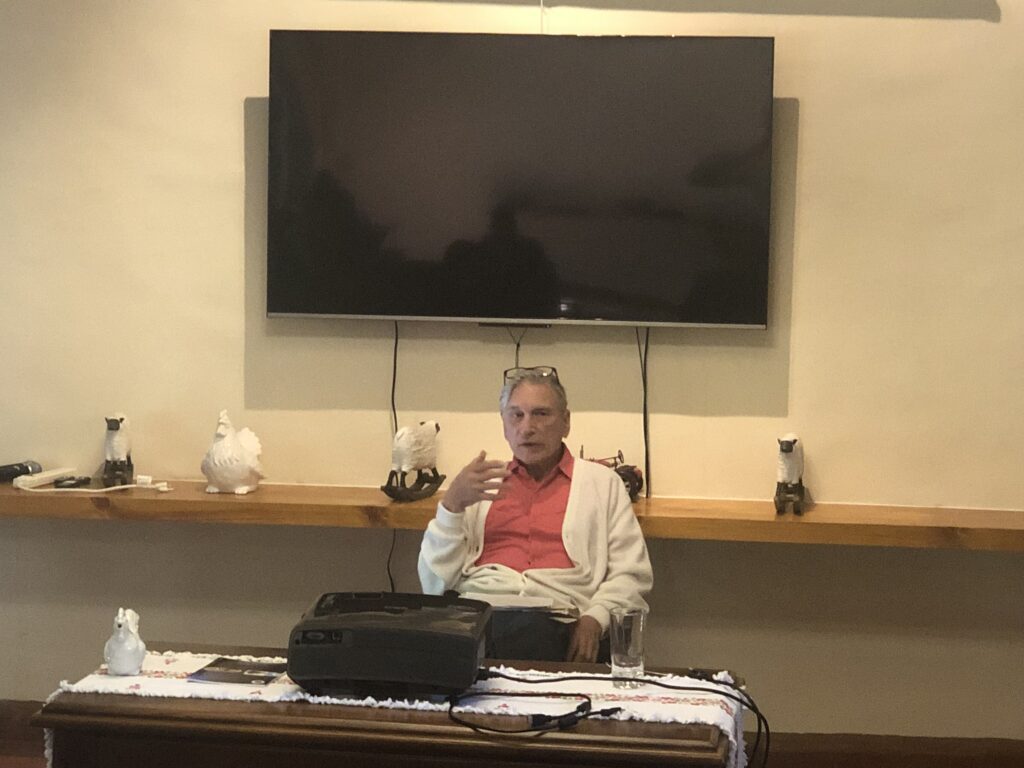Excerpted from Second Power
Last month I attended the Nowhere Summit in Ecuador with several friends, old and new. Alex Petkas provides a good description of the event here:
Technological, political, and societal change are happening at an alarming rate. There are huge, asymmetric opportunities for network-institution builders that simply did not exist 5 years ago.
But it’s hard to stay on top of all developments – to get up to speed not just on what people are doing, but how they are doing it.
…
We want to equip ourselves – and you – to participate in the network revolution going on behind the scenes, which you may periodically see the results of in the news cycle. We want to help you to become a more active participant, a “Live Player.”
People who make the most of the network revolution (which is happening, whether you and I like it or not), are going to be best positioned to serve their countries, communities, businesses, and families. Those who don’t wont. The issue is urgent.
A Platonian summit seeking to be everywhere, nowhere and “now here.”
We visited the Palacio de Carondelet and Basílica del Voto Nacional, and I received a personal, early morning tour of the Hacienda Zuleta dairy farm, deep in the Andes, courtesy of its proprietor, who showed me his wall full of polo photos and grounds steeped in Incan history.
Should We Reform Failing Institutions or Replace Them?

A keynote speaker at the Nowhere Summit was Jeffrey Race, retired military officer, expert on counterinsurgencies in Vietnam, and Harvard-educated author of the military classic “The War Comes to Long An.” A native New Englander, Professor Race lived in Asia for 45 years before returning to Harvard in 2012 to work on a project addressing pathologies in public decision-making. At Harvard, he studied under Henry Kissinger, among other notables.
On the matter of displacing destructive institutions and rebooting failing societies, Professor Race referenced a piece of his called Fighting Corruption with What Really Works. The essay lists three historical examples of instances where new modes of governance were able to supersede refractory societies:
- Singapore in the 1960s;
- Arabia circa 600 Common Era; and
- Sparta circa 700 BC.
The chief takeaway is that, historically, anti-corruption efforts typically fail due to an over-reliance on coercive and punitive efforts. The best hack is to re-norm rather than reform. Comprehensive change is downstream from charismatic individuals and mass, internalized value shifts.
The individuals associated with the re-norming instances above are:
- Lee Kuan Yew;
- Muhammed; and
- Lycurgus.
In all three cases, these charismatic individuals initiated changes using their personalities and vision, not institutional reforms. The work began with a small group of followers (followed by a preference cascade and many new acolytes) and replacement norms were eventually ushered in through state power.
The inclusion of Muhammed struck me as particularly interesting. Per Jeffrey by way of French scholar Maxime Rodinson:
…Muhammad set the presence of God. God was there, as a fact, and that changed everything. God existed and he cared for men, even for the humblest. He did not wish for lawless outbreaks of violence, regardless of the peace and even the very lives of others. Above all else, the believer must take life seriously and show consideration for others, for morality and for the demands of God. Morality was practically identical with religion. Faith must always, should always, be expressed in works. Every ‘social’ act was a way of worshipping God.
Regarding the others — Lycurgus did not seek personal power, was a careful planner, and was perceived as being a leader despite not holding office (he had been king but gave up his throne). His followers had an intensity of their own, so much that it cost him an eye at one point.
Lee used a panoply of measures to re-norm behaviors and his legacy can be permutated into all kinds of interpretations (in this 2022 article, Mother Jones magazine says American right-wing luminaries are appropriating Lee’s “soft-authoritarianism” as a fashionable template for governance.)
The Mother Jones piece attempts to tar Curtis Yarvin, among several others. But for clarity’s sake, and as a brief aside, Yarvin states here that he’s never desired to live in Singapore, that he thinks it’s correct to characterize Singapore as both a successful neocameral city-state and Disneyland With the Death Penalty, and that any concept of “Based Singapore” is a myth.
BTW, Professor Race also has some top-tier dietary advice, available here. He’s in his 80s but can do deadlifts and a 4-minute plank.















